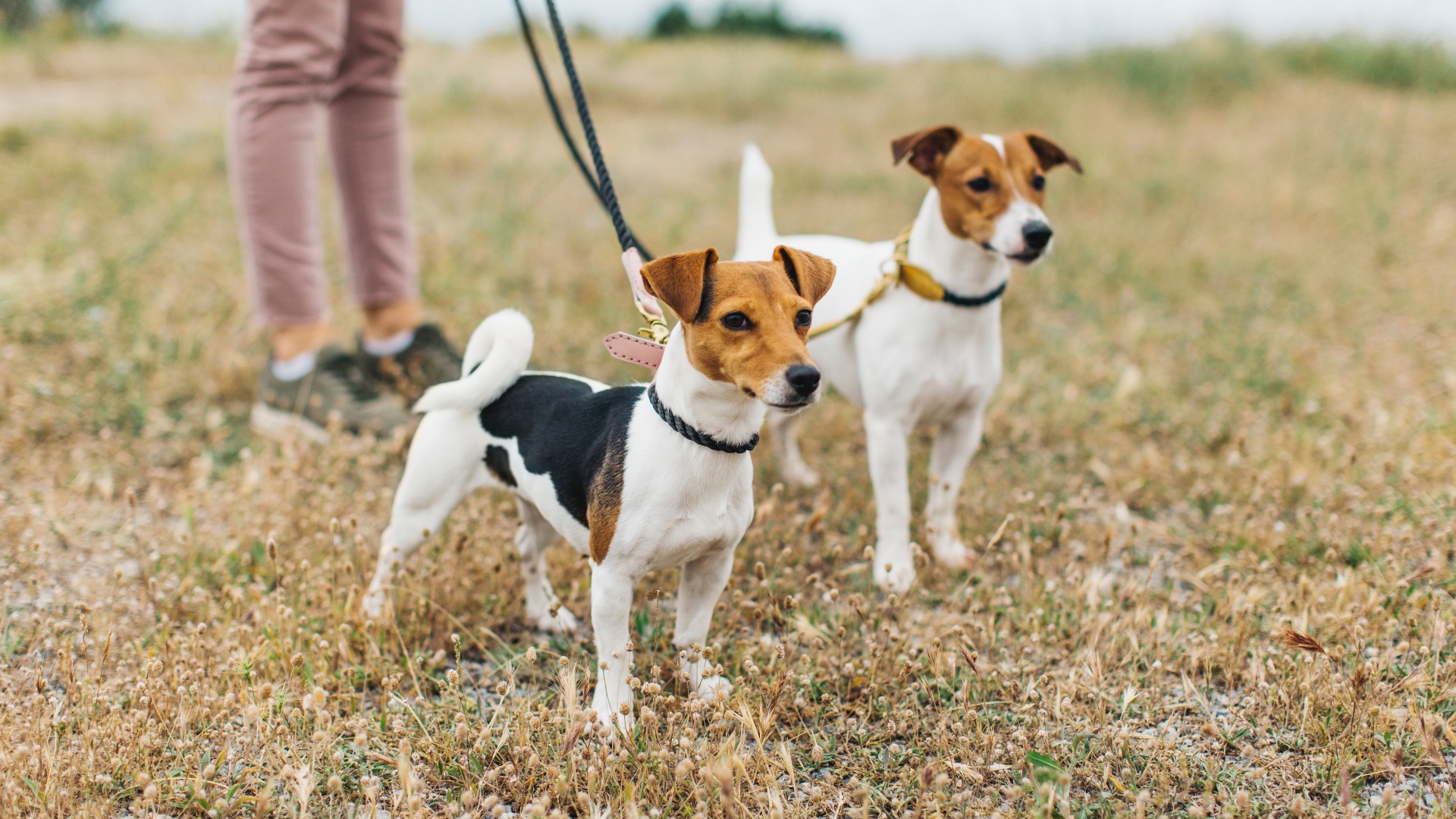These three training tips from an expert will help your dog overcome leash reactivity
Is your dog reactive when you're out on a walk? Here's three things that will help take the stress out of your daily stroll...

Disclaimer: Unless specifically stated, any expert comments quoted in this news piece have been taken directly from the video cited below.
A lot of pet parents struggle with their nervous or anxious dog's behavior, which is why understanding how to calm a reactive dog is so important.
Particularly challenging is leash reactivity, which can cause normally relaxed dogs to bark or lunge whenever they encounter a trigger.
While leash reactivity can make daily walks with your pup both stressful and exhausting, there is a solution.
Alex Sessa, founder and head trainer at Peach on a Leash, believes you can successfully modify leash reactivity by following three simple steps.
Keep reading as we reveal the top tips she shared in an Instagram video...
A post shared by Peach On A Leash Dog Training (@peachonaleash)
A photo posted by on
1. Understand that your dog's progress won't be linear: Don’t look at your training as Point A to Point B," advises Sessa. "Reactivity exists on a spectrum and there simply isn’t a quick fix. This is an emotion-driven behavior, meaning that we need to change the way your dog FEELS in the presence of a trigger in order to create positive change."
Get the best advice, tips and top tech for your beloved Pets
2. Prioritize distance: "You’re going to see the absolute best success if you’re able to work under your dog’s threshold - meaning, they’re able to work with you without rehearsing the barking and lunging we don’t want. This might mean changing where you walk (at first) and always being prepared with high-value food."
3. Start with what your dog can handle right now: "For highly reactive dogs, you will be working at a VERY large distance, likely using a fake dog and/or a planned human helper to help you minimize surprises," explains Sessa.
"Remember, your dog needs some successes under their belt to be able to build up to harder and more realistic situations! You will start by marking “yes!” and rewarding your dog each time they notice the trigger. If they bark, lunge; or ignore you, add distance and try again."
Reactivity — whether on or off the leash — can be challenging to deal with. If you feel you and your pup would benefit from some extra support with this issue, we recommend reaching out to a professional trainer.

Kathryn is a freelance writer who has been a member of the PetsRadar family since it launched in 2020. Highly experienced in her field, she's driven by a desire to provide pet parents with accurate, timely, and informative content that enables them to provide their fur friends with everything they need to thrive.
Kathryn works closely with vets and trainers to ensure all articles offer the most up-to-date information across a range of pet-related fields, from insights into health and behavior issues to tips on products and training.
When she’s not busy crafting the perfect sentence for her features, buying guides and news pieces, she can be found hanging out with her family (which includes one super sassy cat and a kitten), drinking copious amounts of Jasmine tea and reading all the books.
She has written for a range of publications, including Fit&Well, Top Ten Reviews, LiveScience, Goodto, and Product Hunt.
